For many dog lovers, the joy of having a canine companion is sometimes tempered by the never-ending battle against shedding hair. If you’re seeking a small dog that won’t leave a trail of fur around your home, you’re in luck! This guide explores a variety of small dog breeds known for their minimal or non-existent shedding, ensuring your living space stays cleaner and your life a little less hairy. These breeds are perfect for allergy sufferers, meticulous housekeepers, or anyone who simply prefers a tidier companion.
toy breed dogs for sale near me are often sought after for their compact size, and when combined with low-shedding coats, they become exceptionally desirable pets. While no dog is entirely “shed-proof,” these breeds come remarkably close, requiring less grooming and vacuuming. Let’s dive into the world of small dogs that don’t shed and stay small.
Affenpinscher: The Monkey-like Terrier
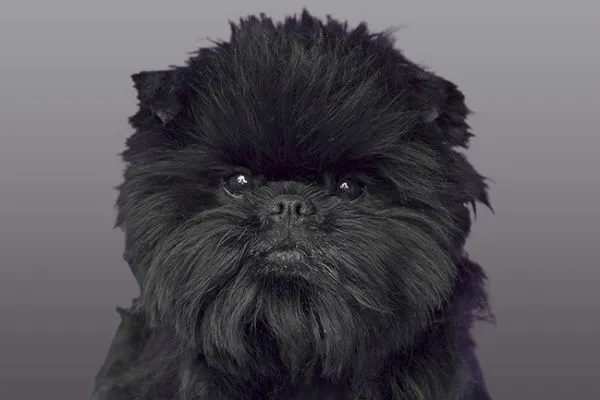 affenpinscherThe name “Affenpinscher” translates to “monkey-like terrier,” and these dogs indeed possess an intelligent and somewhat mischievous appearance. Despite their petite stature, Affenpinschers are remarkably fearless and make excellent alert dogs. You can rest assured that any unexpected visitor will be announced, and finding dog hair in your meals will be a thing of the past. Their wiry coat sheds very little and is also known for having minimal “doggy odor.” A simple twice-weekly brushing with a slicker brush and comb is sufficient to maintain their charmingly shaggy yet neat look. This low-maintenance breed is also celebrated for its humorous personality.
affenpinscherThe name “Affenpinscher” translates to “monkey-like terrier,” and these dogs indeed possess an intelligent and somewhat mischievous appearance. Despite their petite stature, Affenpinschers are remarkably fearless and make excellent alert dogs. You can rest assured that any unexpected visitor will be announced, and finding dog hair in your meals will be a thing of the past. Their wiry coat sheds very little and is also known for having minimal “doggy odor.” A simple twice-weekly brushing with a slicker brush and comb is sufficient to maintain their charmingly shaggy yet neat look. This low-maintenance breed is also celebrated for its humorous personality.
Basenji: The Barkless Wonder
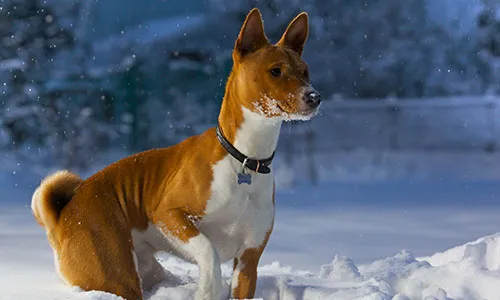 basenjiIf you admire the hound group but are deterred by their characteristic odor and shedding, the Basenji might be your ideal small dog. These dogs shed minimally, and their short, fine coat requires very little upkeep beyond occasional brushing. Basenjis are also famously quiet, making them exceptionally well-suited for apartment living, provided they receive adequate daily exercise and playtime. Their unique vocalizations, often described as yodels, are a distinctive trait.
basenjiIf you admire the hound group but are deterred by their characteristic odor and shedding, the Basenji might be your ideal small dog. These dogs shed minimally, and their short, fine coat requires very little upkeep beyond occasional brushing. Basenjis are also famously quiet, making them exceptionally well-suited for apartment living, provided they receive adequate daily exercise and playtime. Their unique vocalizations, often described as yodels, are a distinctive trait.
Bichon Frise: The Cloud of Joy
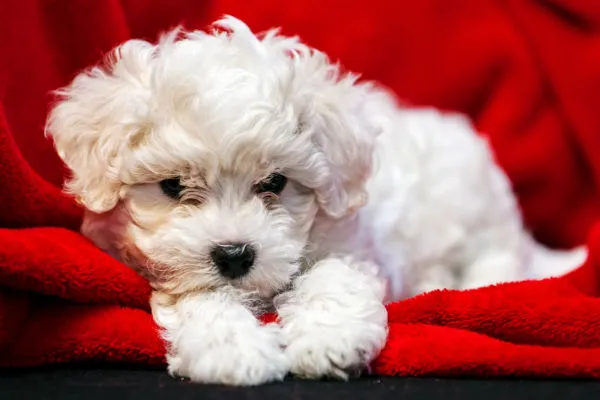 bichon friseThe Bichon Frise is renowned as a truly non-shedding small dog breed. These lively and affectionate dogs are a fantastic choice for individuals with allergies, often considered one of the best family small dogs that dont shed. However, they are not maintenance-free. Their hair grows continuously, necessitating frequent grooming, regular brushing, and occasional baths to maintain their signature “powder-puff” appearance. Consistent grooming is key to preventing matting and keeping their coat healthy and beautiful.
bichon friseThe Bichon Frise is renowned as a truly non-shedding small dog breed. These lively and affectionate dogs are a fantastic choice for individuals with allergies, often considered one of the best family small dogs that dont shed. However, they are not maintenance-free. Their hair grows continuously, necessitating frequent grooming, regular brushing, and occasional baths to maintain their signature “powder-puff” appearance. Consistent grooming is key to preventing matting and keeping their coat healthy and beautiful.
Bolognese: The Italian Lap Dog
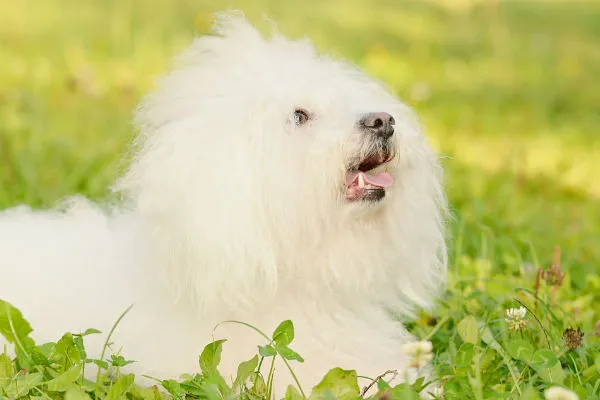 bologneseSimilar to the Bichon Frise, the Bolognese boasts a distinctive fluffy coat that is hair rather than fur. This lovable breed does not shed, although dead hair needs to be brushed out regularly. Their coat requires daily grooming to keep these delightful lap dogs looking their absolute best. Their gentle and affectionate nature makes them wonderful companions for families.
bologneseSimilar to the Bichon Frise, the Bolognese boasts a distinctive fluffy coat that is hair rather than fur. This lovable breed does not shed, although dead hair needs to be brushed out regularly. Their coat requires daily grooming to keep these delightful lap dogs looking their absolute best. Their gentle and affectionate nature makes them wonderful companions for families.
Brussels Griffon: The Expressive Companion
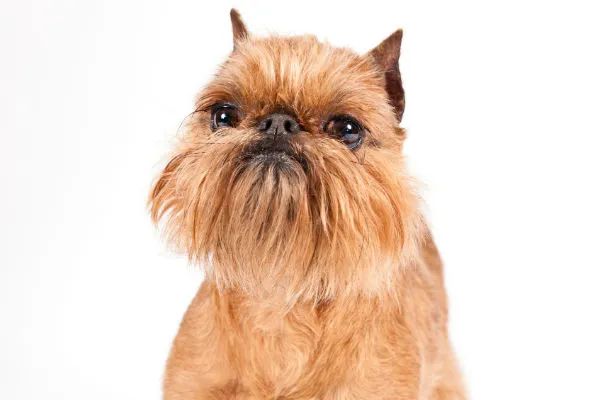 brussells griffonDon’t let their small size fool you; Brussels Griffons are not dogs that require excessive pampering. Both the smooth-coated and rough-coated varieties of this breed thrive with regular grooming and are minimal shedders. Their compact size means that a daily walk and some indoor play are usually sufficient to meet their exercise requirements. This loyal breed thrives in the company of families who are home frequently, as they can develop separation anxiety if left alone for too long.
brussells griffonDon’t let their small size fool you; Brussels Griffons are not dogs that require excessive pampering. Both the smooth-coated and rough-coated varieties of this breed thrive with regular grooming and are minimal shedders. Their compact size means that a daily walk and some indoor play are usually sufficient to meet their exercise requirements. This loyal breed thrives in the company of families who are home frequently, as they can develop separation anxiety if left alone for too long.
Chinese Crested: The Unique Look
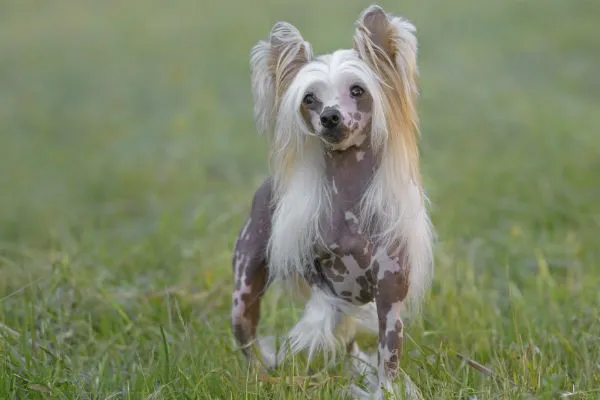 chinese crestedOne of the most straightforward ways to avoid shedding is to opt for a hairless dog breed. The Chinese Crested comes in two distinct coat types: hairless and powderpuff. The hairless variety has hair primarily on its head, tail, and feet. The powderpuff, on the other hand, is covered in a fine coat that sheds very minimally. Hairless dog breeds require extra attention to their skin. Without a full coat of fur, they need protection from the sun and cold and are more susceptible to skin irritations.
chinese crestedOne of the most straightforward ways to avoid shedding is to opt for a hairless dog breed. The Chinese Crested comes in two distinct coat types: hairless and powderpuff. The hairless variety has hair primarily on its head, tail, and feet. The powderpuff, on the other hand, is covered in a fine coat that sheds very minimally. Hairless dog breeds require extra attention to their skin. Without a full coat of fur, they need protection from the sun and cold and are more susceptible to skin irritations.
Coton de Tulear: The Cotton Ball Dog
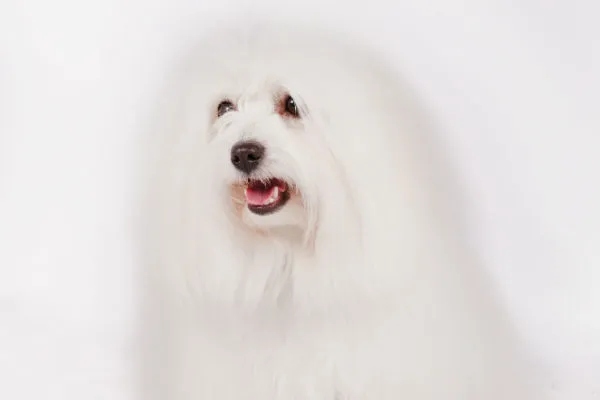 coton de tulearThe Coton de Tulear is characterized by its distinctive, long, and fluffy coat, which is considered hypoallergenic. This makes them an excellent choice for individuals with allergies and those seeking a small dog that doesn’t shed much. While Coton de Tulears do require daily grooming to maintain their beautiful coats, their lighthearted and gentle demeanor makes the effort entirely worthwhile. Their playful nature and affectionate disposition make them cherished family members.
coton de tulearThe Coton de Tulear is characterized by its distinctive, long, and fluffy coat, which is considered hypoallergenic. This makes them an excellent choice for individuals with allergies and those seeking a small dog that doesn’t shed much. While Coton de Tulears do require daily grooming to maintain their beautiful coats, their lighthearted and gentle demeanor makes the effort entirely worthwhile. Their playful nature and affectionate disposition make them cherished family members.
Havanese: The Cuban Charmer
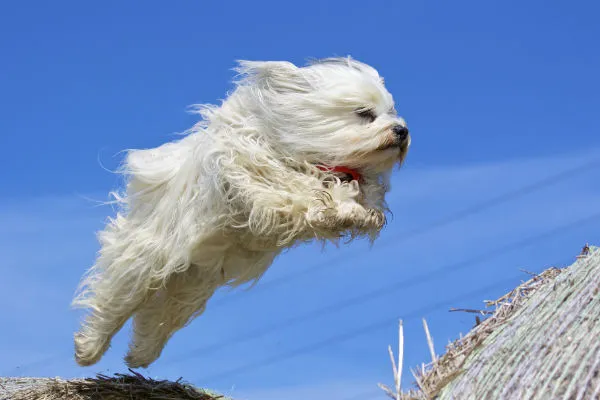 havaneseThese native Cuban dogs offer their owners a captivating blend of spunky charm and a non-shedding coat. This means less time spent de-linting your furniture and more time enjoying playful romps with your Havanese. Their coat requires weekly brushing and regular baths to keep them clean and healthy. Their intelligence and adaptability also make them great candidates for various dog sports.
havaneseThese native Cuban dogs offer their owners a captivating blend of spunky charm and a non-shedding coat. This means less time spent de-linting your furniture and more time enjoying playful romps with your Havanese. Their coat requires weekly brushing and regular baths to keep them clean and healthy. Their intelligence and adaptability also make them great candidates for various dog sports.
Maltese: The Ancient Companion
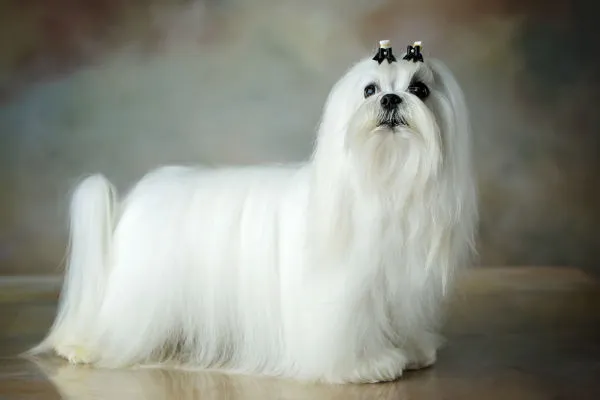 malteseThe Maltese breed has captivated human companions for millennia. This ancient dog breed from Malta has remained remarkably consistent over centuries, partly due to its long, white coat that sheds very little, making it an ideal lap dog. Their coats do require regular brushing to prevent mats from forming, and occasional baths are necessary to remove dirt and debris from their long, silky hair. For those seeking incredibly quiet small dogs that don t shed, the Maltese is a strong contender.
malteseThe Maltese breed has captivated human companions for millennia. This ancient dog breed from Malta has remained remarkably consistent over centuries, partly due to its long, white coat that sheds very little, making it an ideal lap dog. Their coats do require regular brushing to prevent mats from forming, and occasional baths are necessary to remove dirt and debris from their long, silky hair. For those seeking incredibly quiet small dogs that don t shed, the Maltese is a strong contender.
Lhasa Apso: The Tibetan Sentinel
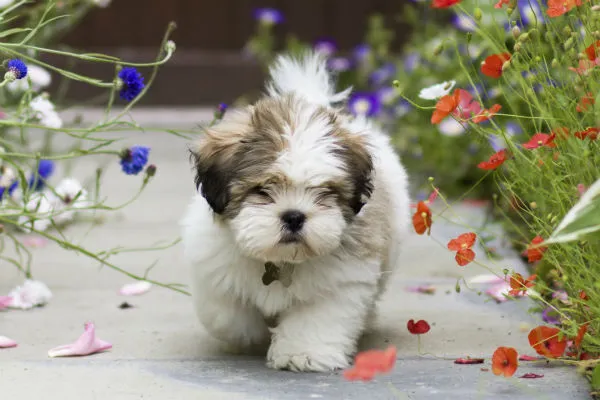 lhasa apsoThis small dog breed originating from Tibet makes for an excellent companion. The Lhasa Apso is known for being calm yet playful, enjoying brisk walks and relaxing in their owner’s lap. Lhasa Apsos do not shed, but their coats do require consistent maintenance. Many owners opt to keep their Lhasa Apsos clipped in a “puppy cut” to simplify daily grooming and brushing of their long hair. This practical approach helps manage their luxurious coat effectively.
lhasa apsoThis small dog breed originating from Tibet makes for an excellent companion. The Lhasa Apso is known for being calm yet playful, enjoying brisk walks and relaxing in their owner’s lap. Lhasa Apsos do not shed, but their coats do require consistent maintenance. Many owners opt to keep their Lhasa Apsos clipped in a “puppy cut” to simplify daily grooming and brushing of their long hair. This practical approach helps manage their luxurious coat effectively.
Miniature Schnauzer: The Spirited Terrier
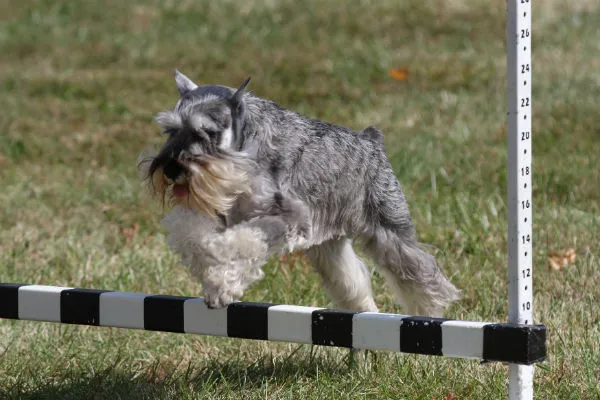 miniature schnauzerThe Miniature Schnauzer is an intelligent, trainable, and cheerful little dog that bears a strong resemblance to its larger Standard Schnauzer cousin. This Terrier breed sheds very little, and their adaptability allows them to thrive equally well in city or country environments, as long as their people are nearby. To maintain their distinctive appearance, regular weekly brushing and professional grooming should be incorporated into their care routine.
miniature schnauzerThe Miniature Schnauzer is an intelligent, trainable, and cheerful little dog that bears a strong resemblance to its larger Standard Schnauzer cousin. This Terrier breed sheds very little, and their adaptability allows them to thrive equally well in city or country environments, as long as their people are nearby. To maintain their distinctive appearance, regular weekly brushing and professional grooming should be incorporated into their care routine.
Poodle: The Smart and Stylish Non-Shedder
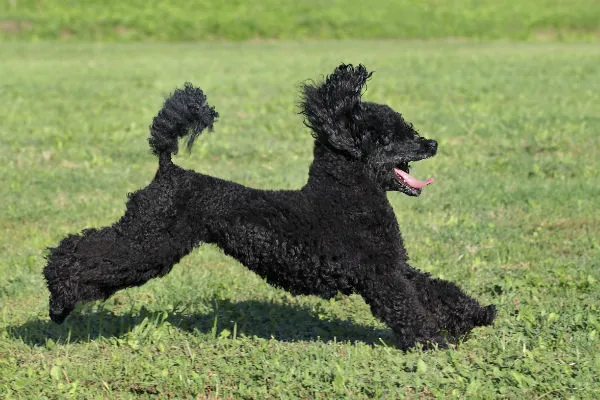 poodlePoodles are often the first breed that comes to mind when discussing small, non-shedding dogs, and for good reason. Poodles are considered non-shedding and hypoallergenic. Miniature and Toy Poodles offer these desirable traits in compact, intelligent packages, differing from their Standard Poodle counterparts primarily in size. All Poodles are highly intelligent, making them relatively easy to train, and they are known for their active and proud demeanor. However, their curly coats do require regular professional grooming to prevent matting and maintain their stylish appearance. If you’re considering a teddy bear poodle for sale near me, remember that their grooming needs are similar to other Poodle varieties.
poodlePoodles are often the first breed that comes to mind when discussing small, non-shedding dogs, and for good reason. Poodles are considered non-shedding and hypoallergenic. Miniature and Toy Poodles offer these desirable traits in compact, intelligent packages, differing from their Standard Poodle counterparts primarily in size. All Poodles are highly intelligent, making them relatively easy to train, and they are known for their active and proud demeanor. However, their curly coats do require regular professional grooming to prevent matting and maintain their stylish appearance. If you’re considering a teddy bear poodle for sale near me, remember that their grooming needs are similar to other Poodle varieties.
Scottish Terrier: The Bold Companion
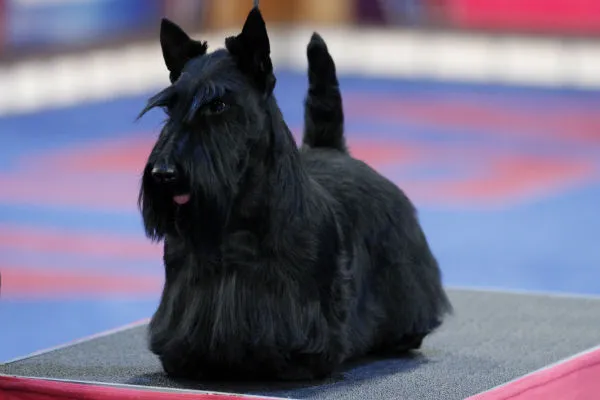 scottish terrierThe Scottish Terrier, affectionately known as the Scottie, is a Terrier breed celebrated for its boldness, confidence, and significant personality. Their wiry, weather-resistant coat sheds very little. However, they do require regular brushing, professional grooming, and occasional hand-stripping to maintain coat health and the breed’s distinctive silhouette. Scotties are intelligent and independent dogs with strong prey drives, necessitating caution around smaller animals.
scottish terrierThe Scottish Terrier, affectionately known as the Scottie, is a Terrier breed celebrated for its boldness, confidence, and significant personality. Their wiry, weather-resistant coat sheds very little. However, they do require regular brushing, professional grooming, and occasional hand-stripping to maintain coat health and the breed’s distinctive silhouette. Scotties are intelligent and independent dogs with strong prey drives, necessitating caution around smaller animals.
Shih Tzu: The Regal Lap Dog
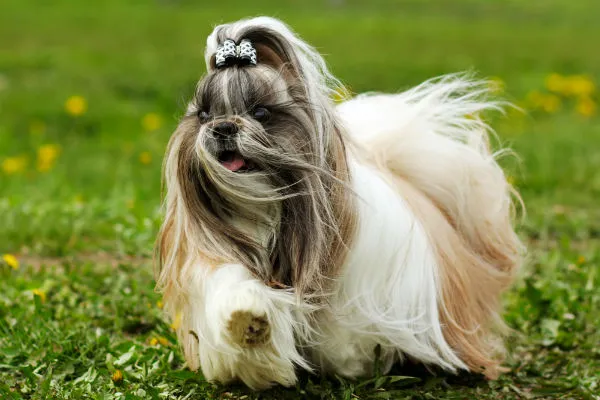 shitzuThe Shih Tzu boasts a long and distinguished pedigree, having been a favored house pet of royalty in ancient China. These “little lion dogs” come in a variety of colors and patterns. Their long, silky hair is very low-shedding and appears exceptionally regal when brushed out, befitting their royal ancestry. This Toy breed is sturdy and lively, carrying themselves with a proud demeanor, characterized by their held heads and curling tails. Shih Tzus were bred primarily as companions, and their gentle, trusting nature makes them exceptional household pets.
shitzuThe Shih Tzu boasts a long and distinguished pedigree, having been a favored house pet of royalty in ancient China. These “little lion dogs” come in a variety of colors and patterns. Their long, silky hair is very low-shedding and appears exceptionally regal when brushed out, befitting their royal ancestry. This Toy breed is sturdy and lively, carrying themselves with a proud demeanor, characterized by their held heads and curling tails. Shih Tzus were bred primarily as companions, and their gentle, trusting nature makes them exceptional household pets.
West Highland White Terrier: The Cheerful Scot
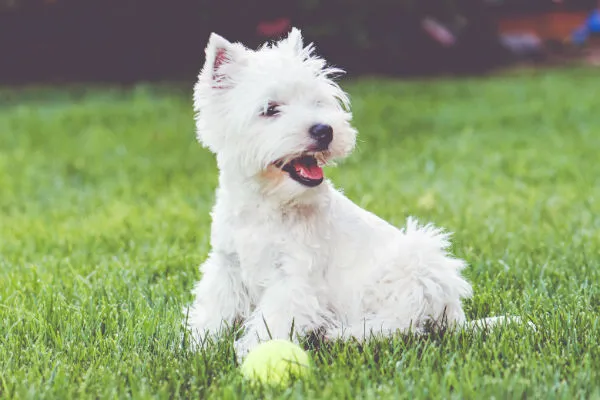 west highland terrierThe coarse, white hair of the West Highland White Terrier, affectionately called “Westies” by fans, sheds very little. This sturdy little dog is intelligent, loyal, happy, and highly entertaining. They are curious dogs with moderate energy levels and an independent streak common among Terriers, which can occasionally make training a bit of a challenge. Their resilience and cheerful disposition make them beloved family members.
west highland terrierThe coarse, white hair of the West Highland White Terrier, affectionately called “Westies” by fans, sheds very little. This sturdy little dog is intelligent, loyal, happy, and highly entertaining. They are curious dogs with moderate energy levels and an independent streak common among Terriers, which can occasionally make training a bit of a challenge. Their resilience and cheerful disposition make them beloved family members.
Xoloitzcuintli: The Ancient Mexican Hairless
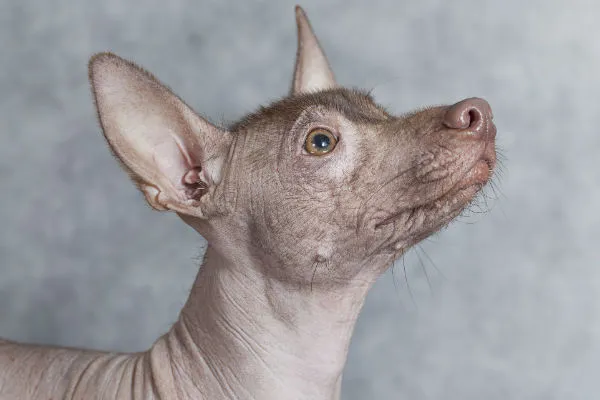 xoloAlso known as the Mexican Hairless, the Xoloitzcuintli is an ancient and rare breed that can be either hairless or coated. Hairless varieties typically have a small amount of hair on their heads, while the coated variety sports a very short, fine coat that sheds minimally. As with any hairless breed, the Xolo requires a little extra skin care to protect them from environmental elements. Xolos make attentive watchdogs and affectionate companions. While they enjoy physical activities like walks and vigorous play, they are also known for their tranquil presence around the home.
xoloAlso known as the Mexican Hairless, the Xoloitzcuintli is an ancient and rare breed that can be either hairless or coated. Hairless varieties typically have a small amount of hair on their heads, while the coated variety sports a very short, fine coat that sheds minimally. As with any hairless breed, the Xolo requires a little extra skin care to protect them from environmental elements. Xolos make attentive watchdogs and affectionate companions. While they enjoy physical activities like walks and vigorous play, they are also known for their tranquil presence around the home.
Yorkshire Terrier: The Tiny Titan
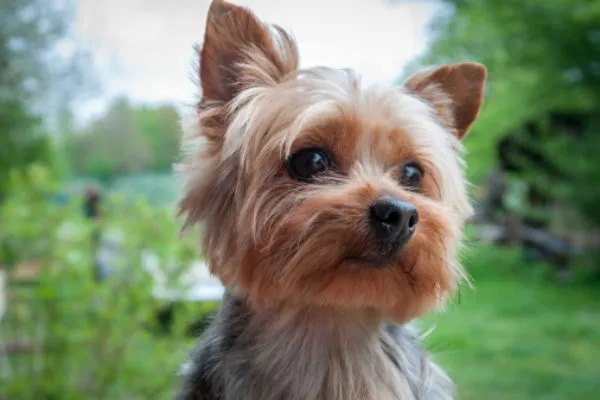 yorkieSprightly, spirited, and affectionate, the Yorkshire Terrier, commonly known as the Yorkie, is a Toy breed packed with personality. These spunky lap dogs are consistently among the most popular dog breeds in America, and for good reason. Yorkshire Terriers do not shed, and their silky coats are beautiful when brushed daily, which is made manageable by their small size. Don’t be fooled by their elegant appearance; Yorkies have working-class roots. These fearless terriers once hunted rats in English textile mills, though today they are just as happy to snuggle on their owner’s lap as they are to chase a rodent.
yorkieSprightly, spirited, and affectionate, the Yorkshire Terrier, commonly known as the Yorkie, is a Toy breed packed with personality. These spunky lap dogs are consistently among the most popular dog breeds in America, and for good reason. Yorkshire Terriers do not shed, and their silky coats are beautiful when brushed daily, which is made manageable by their small size. Don’t be fooled by their elegant appearance; Yorkies have working-class roots. These fearless terriers once hunted rats in English textile mills, though today they are just as happy to snuggle on their owner’s lap as they are to chase a rodent.
The Terrier Group: A Shed-Free Haven
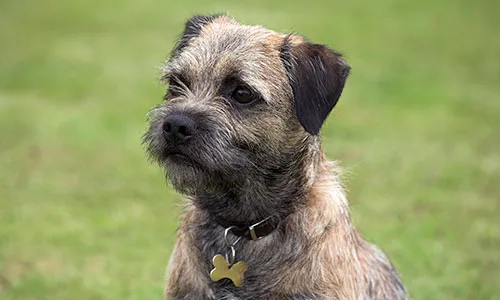 border terrierThe Terrier group is a treasure trove of small dogs that shed minimally or not at all. Breeds with wiry and coarse coats within the Terrier group tend to shed less than other types of dogs, making them ideal choices for individuals who dislike excessive shedding. Many small dog breeds offer the advantage of not shedding, but it’s crucial to remember that even low-shedding dogs require maintenance. Thoroughly researching non-shedding breeds is essential to find a dog that perfectly complements your lifestyle and personality. To ensure your pet’s well-being and avoid potential health issues, always acquire a dog from a reputable breeder, feed a high-quality diet, and schedule regular veterinary checkups.
border terrierThe Terrier group is a treasure trove of small dogs that shed minimally or not at all. Breeds with wiry and coarse coats within the Terrier group tend to shed less than other types of dogs, making them ideal choices for individuals who dislike excessive shedding. Many small dog breeds offer the advantage of not shedding, but it’s crucial to remember that even low-shedding dogs require maintenance. Thoroughly researching non-shedding breeds is essential to find a dog that perfectly complements your lifestyle and personality. To ensure your pet’s well-being and avoid potential health issues, always acquire a dog from a reputable breeder, feed a high-quality diet, and schedule regular veterinary checkups.
References
- American Kennel Club. (n.d.). Dog Breeds. Retrieved from https://www.akc.org/dog-breeds/
- American Kennel Club. (n.d.). AKC Marketplace. Retrieved from http://marketplace.akc.org/puppies/
